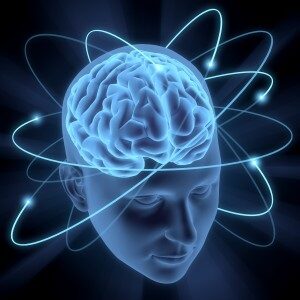I was just a little girl when I learned about Alzheimer’s Disease and Dementia. Over the years I watched this memory corrupting/consuming disease absorb my great-grandmother’s memories. At first, it was just little things that were forgotten and nothing seemed out of the ordinary. Eventually, big things were forgotten too and that scared the crap out of me. When I was 15 she passed away at the age of 99.
I’m in my 30’s now and a few years ago my mother was diagnosed with an early form of dementia. There are always memories we hold dear to us that we never want to forget. My experience of having loved ones with Alzheimer’s caused me to want to research the brain and memory in general.
Through research, I discovered that there are various exercises and things we can do that help keep our brain sharp and healthy. Things that can be done now that can help us in the future.
What Affects Memory?
There are numerous things that can put a strain on your memory skills. Here’s a list of seven things that negatively affect your memory.
- Stress: Stress ends up on so many naughty lists. There are important time-frames throughout our entire life that experiencing stress can cause negative consequences later on in life. A little stress is ok and healthy but too much can be extremely detrimental to memory function.
- Medication Side-effects: A study published on the British Medical Journal was done to see if there was any connection between Anticholinergic medications and the risk of dementia. It’s a good idea to try to avoid anticholinergic medication when it comes to the elderly.
- Vitamin/Mineral/Nutritional Deficiency: Every part of our body needs vitamins and minerals to function properly. Some vitamin and mineral deficiencies can cause an effect on memory. It’s called brain food for a reason. Vitamin B filled foods are important and when it comes to memory it is vitamin B-1 and B-12 that you need.
- Sleep Deprivation: Lack of sleep and stress are both pretty common causes of health and wellness issues. Our body needs sleep, without it, our body just wears down and starts breaking down too. Our brain rejuvenates while we sleep just like the rest of our body.
- Depression: Depression can cause so many side-issues right on top of the depression itself. Being depressed has the ability to affect your mental, emotional, and physical well-being. Sometimes things become a blur and time just floats on by and others everything seems so fast you just can’t keep up.
- Strokes: Strokes affect the arteries that lead to the brain. A stroke can affect the entire body. Visual, muscular, facial, limbs, speech, sensory, understanding, and so much more can be affected. There are times people have to go through therapy and rehabilitation that helps them relearn how to do simple things.
- Genetics: Memory problems and diseases that cause memory problems can be passed down through genetics. Sometimes it skips generations and other times it doesn’t.
Improving Your Memory
- Never Stop Learning: You don’t have to learn 25 languages or even be extreme but you do have to continue learning new things. Even if it’s new things about old things you already know. It helps to keep our brain active and exercised.
- Reading: An article published on ABC News about how reading novels can improve your brain says it turns out that reading is a very complex thing and it requires different parts of the brain to work together. It also improves the connectivity of the circuits in our brain.
- Herbs & Natural Supplements: Nootropics can improve memory, cognitive function, executive functions and increase motivation. Nootropics can be natural or synthetic. Some natural nootropic herbs and supplements are:
L-theanine – an amino acid found in tea which produces calming effects on the brain.
Creatine – an amino acid that increases the availability of energy for brain cells which can improve short-term memory.
Bacopa Monnieri – this ancient herb is used to enhance the brain’s function and improve memory.
Rhodiola Rosea – an adaptogenic herb that reduces brain fatigue and helps the body handle stress.
Panax Ginseng –Panax Ginseng boosts brain function. It also reduces brain fatigue and massively improves the performance of mental skills.
Ginkgo Biloba – Ginkgo improves memory, as well as, mental processing.
- Meditation: I think meditation can be so good for relaxing the mind. Sometimes we have too much on our mind and this can lead to confusion and struggling to remember simple things. Meditation can be used for energizing the mind, as well as, calming it.
- Scrapbooking & Photo Albums: The famous idiom ‘a picture’s worth a thousand words’ speaks volumes when it comes to the memory. Putting together scrapbooks or photo albums of events you want to remember helps you relive the memory through photographs. I prefer a scrapbook or an album with spots to add notes. This idea is great for short-term and long-term memory training and it’s there for the future.
- Games: There are so many memory enhancing and building games to choose from. You can find board games, PC games, apps, and video games that exercise your brain and are entertaining as well. There are memory building games for kids and adults so maybe family game night can include some brain games.
- Healthy Sleep: Sleep is so important for our overall health and well-being. A good uninterrupted nights sleep works wonders and it is noticeable rather quickly. You need 6 – 8 hours of sleep a night.
Our memory is important! Sometimes our mind is just as important to others as it is to ourselves. Nobody appreciates or likes a forgotten birthday or anniversary. I wholeheartedly believe that whole-body healing is the best way to fix us! Mental, physical, and emotional health is important. Take care of yourselves out there!





